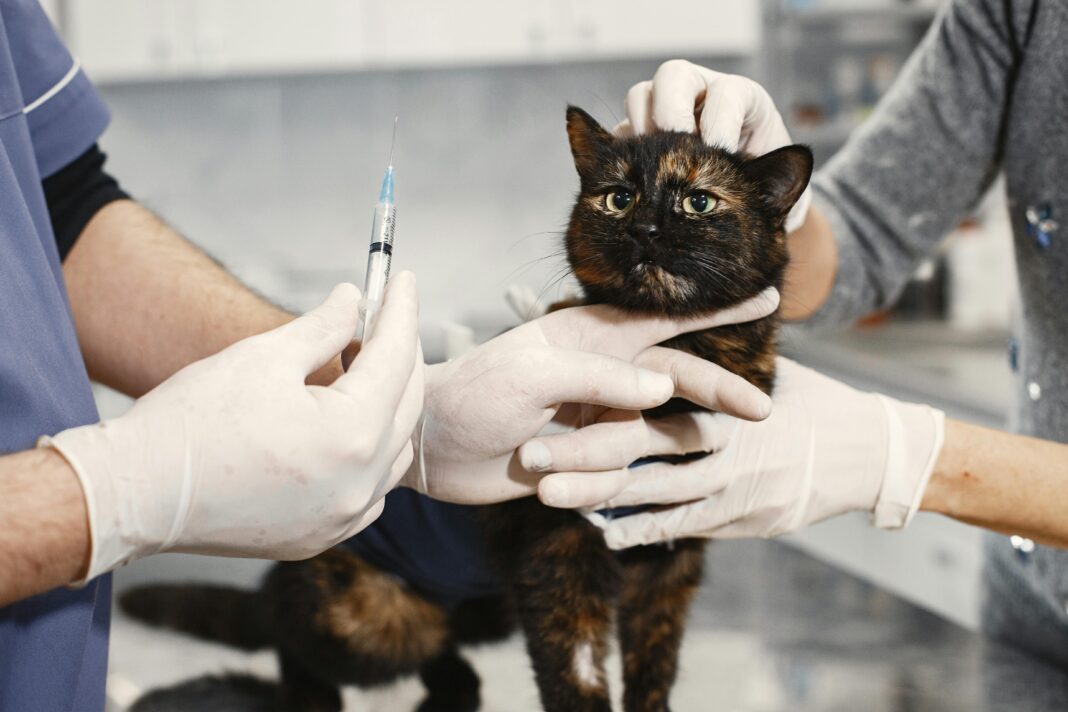Heartworm disease is a serious and potentially fatal condition for dogs, caused by parasitic worms transmitted through mosquito bites. As pet owners, understanding heartworm prevention, symptoms, diagnosis, and treatment is vital for keeping our furry friends healthy. This comprehensive guide will walk you through all aspects of heartworm medications, providing the information you need to make informed choices for your pet.
What is Heartworm Disease?
Heartworm disease is caused by Dirofilaria immitis, a parasite that can live in a dog’s heart and lungs. Adult worms can grow up to a foot long, residing within the blood vessels and leading to severe health complications.
Causes of Heartworm Disease
Heartworm is primarily spread by mosquitoes. When an infected mosquito bites a dog, it transmits heartworm larvae into the dog’s bloodstream. Over several months, these larvae mature into adult worms, which can lead to significant damage to the cardiovascular system.
Symptoms of Heartworm Disease
The symptoms of heartworm disease can be subtle, especially in the early stages. Pet owners should watch for:
-
- Coughing: A persistent, dry cough may indicate heart or lung issues.
-
- Fatigue: Dogs may show less enthusiasm for play or exercise.
-
- Weight Loss: Unexplained weight loss can signal an underlying health problem.
-
- Decreased Appetite: Dogs refusing food can be a sign of illness.
-
- Swollen Abdomen: This may occur due to fluid buildup, a result of heart failure.
If you notice any of these symptoms, consult your veterinarian immediately.
Diagnosing Heartworm Disease
Diagnosing heartworm disease typically involves several steps:
-
- Physical Examination: Your vet will check for signs like coughing or lethargy.
- Blood Tests: The most common method is the antigen test, which detects proteins released by adult female heartworms.
- Imaging: Chest X-rays may reveal damage to the heart and lungs, while ultrasound can help visualize the worms.
Treatment Options for Heartworm Disease
If your dog is diagnosed with heartworm disease, don’t panic. Treatment is available but requires careful planning and management. There are two main phases of treatment:
1. Removing Adult Worms
The most common medication for adult heartworms is melarsomine (brand name: Immiticide). This injectable drug is administered under veterinary supervision and is typically given in two or three doses. It works by killing adult worms over several months.
Important Considerations:
-
- Hospitalization: Often necessary after treatment to monitor for complications such as pulmonary embolism (blockage of blood vessels).
-
- Restricted Activity: It’s critical to limit your dog’s activity during and after treatment to avoid complications.
2. Killing Microfilariae
Following the death of adult worms, microfilariae (the larvae) need to be eliminated from the bloodstream. This is usually done with a medication called ivermectin (brands: Heartgard, Iverhart), a well-known heartworm preventive that also treats existing microfilariae.
Preventative Medications for Heartworm
Prevention is the best strategy against heartworm disease, and there are various options available:
1. Monthly Oral Medications
-
- Heartgard Plus: Contains ivermectin and pyrantel, effective against heartworms and intestinal parasites.
-
- Iverhart Max: Offers similar protection, targeting heatworm larvae and preventing tapeworms.
2. Topical Treatments
-
- Revolution: A topical solution that protects against heartworms, fleas, ticks, and some other parasites.
-
- Advantage Multi: Offers comprehensive protection by addressing a wide range of parasites.
3. Injectable Medications
-
- Proheart 12: This is an injectable solution providing protection for a full year, reducing the need for monthly administration.
Practical Tips for Heartworm Prevention
-
- Year-Round Prevention: Start preventative measures year-round, as heartworm transmission can occur even in colder months.
- Regular Vet Visits: Schedule annual check-ups to monitor for heartworm and other health issues.
- Consider Your Location: If you live in a region prone to mosquitoes, ensure that your dog is protected during peak mosquito seasons.
- Educate Yourself: Stay informed about heartworm regulations and updates in your area.
Recognizing Risks and Making Choices
In addition to choosing the right heartworm medication, recognizing environmental risks is essential for keeping your dog safe. Keeping your yard free of standing water, using mosquito repellents designed for pets, and avoiding walks during peak mosquito hours can help mitigate the risk.
Monitoring Your Dog Post-Treatment
Afte heartworm treatment, keep a close eye on your dog. Any signs of distress or unusual behavior should be reported to your veterinarian immediately.
Staying proactive about heartworm disease means you can enjoy more quality time with your dog while ensuring their health and happiness. By understanding heartworm disease and available medications, you can help your furry companion live a long, healthy life.





